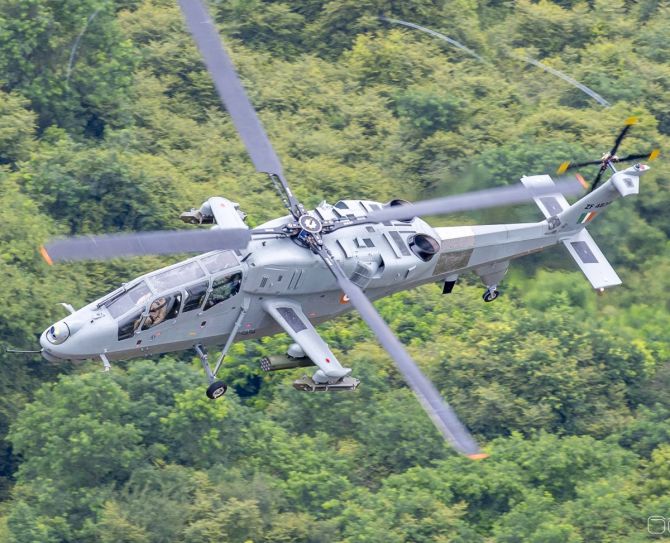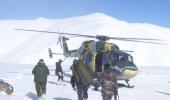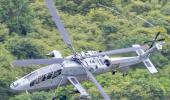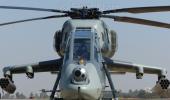HAL helicopters will be equipped with an 'Obstacle Avoidance System' that warns pilots of any obstacles in their flight path.

Sporadic crashes, such as the one in December 2021 that caused the deaths of 13 people including the serving Chief of Defence Staff General Bipin Rawat, are tragic reminders of the threat that obstacles in their flight path pose to helicopters.
Such obstacles may be hills, towers, power lines, aerial cableways or pylons. The probability of such threats increases during bad weather and low-level flight manoeuvres.
To safeguard its helicopters against such accidents, Hindustan Aeronautics Ltd on Tuesday announced a collaboration agreement with German company Hensoldt for equipping HAL choppers with an 'Obstacle Avoidance System' (OAS) that would warn pilots of any obstacles in their predicted flight path.
The agreement, announced at the Aero India 2023, includes transfer of intellectual property (IP) for the design and manufacture of the OAS for Indian helicopters and potential future exports.
The OAS provides smart visual cues to pilots to reduce their workload and increase flight safety. It also increases the probability of mission effectiveness, particularly under adverse visual conditions.
'Where human eyesight alone is not enough, powerful software processes and combines information from sensors and databases and presents it in visual format,' stated a Hensoldt media release.
"This collaboration between HAL Korwa and Hensoldt is the first-of-its-kind in Indian defence industry, with the intention of transferring 'critical key technology' from Germany to India (and) giving a boost to Aatmanirbhar Bharat," said Apurba Roy, who heads HAL's Korwa unit, where the OAS will be built.
"Transfer of technology, including IP for the equipment, is primarily proposed for the Dhruv advanced light helicopter and is expected to be a major fit in all future upgrades/new helicopter programmes, with improvement and customisation by HAL Korwa," Roy explained.
HAL is designing and building a range of helicopters for the Indian military and potentially for the civilian and export market.
Besides the Dhruv ALH, these include the Rudra weaponised helicopter, the Prachanda light combat helicopter, the light utility helicopter, the Indian multi-role helicopter and the Kamov 226T light helicopter.
Estimates range from 1,000 to 2,000 helicopters.
For reliable protection against flying into obstacles -- the technical term is 'controlled flight into terrain' (CFIT) -- it is essential to detect any obstacle at any location within the flight path of the helicopter.
Taking into account the helicopter's flight speed, timely detection can only be done by an on-board, real-time sensor.
'The Hensoldt OAS equipment achieves a detection probability of = 99.5% within the 1st second and a detection range of more than 1,000 metres,' stated Hensoldt.











